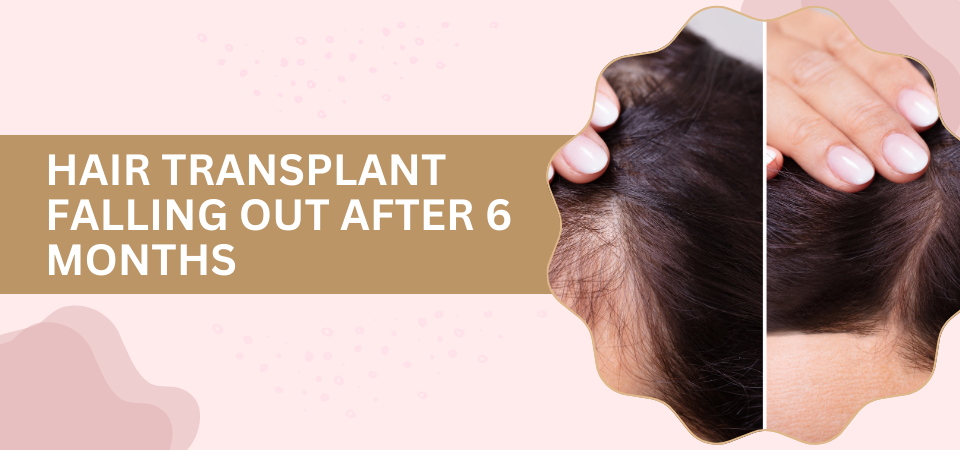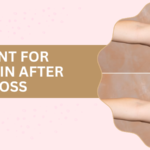
Treatment for loose skin after weight loss
December 9, 2024
Profhilo After 1 Week: What to Expect
January 13, 2025“Hair is the crown you never take off.” This quote resonates deeply with those who have struggled with hair loss. Losing hair affects one’s appearance, confidence, and emotional well-being.
According to dermatological studies, over 85% of men and 50% of women experience hair thinning or hair loss at some point in their lives. In India, similar patterns prevail, with thousands turning to hair transplants as a permanent solution. However, for some, experiencing hair loss even months after the procedure can feel disheartening.
Dr. Anju Methil, a trusted cosmetologist and dermatologist in Mumbai, explains:
“Many patients worry when they see hair falling out after their transplant. It’s important to understand that not all hair falls post-transplant are setbacks. Clients often express concerns about the procedure’s success, so we prioritize clear communication and evidence-based aftercare to ensure their confidence.”
This blog discusses why hair might fall out 6 months after a transplant and what steps you can take to address it.
Does this mean your hair transplant has failed? Or is it part of the natural process? Let’s unravel the truth.
Is It Normal for Hair to Fall Out After a Hair Transplant?
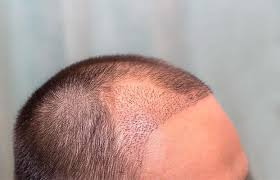
Yes, some hair shedding after a transplant can be entirely normal, even months later. This phenomenon, often called “shock loss,” occurs when newly transplanted hair enters a resting phase before regrowth begins.
Typically, transplanted hair starts growing after 3–4 months, but minor shedding or uneven growth may continue until the hair cycle stabilizes around 8–12 months.
Prominent cosmetologist in Andheri, Dr. Methil, emphasizes:
“Patients must remember that hair restoration is a gradual process. Shedding during this period is usually temporary and not indicative of failure. A well-planned post-procedure care routine can help navigate this phase effectively.”
Are you worried about the results of your hair transplant? Consulting a hair restoration specialist can provide clarity and reassurance tailored to your needs.
But why exactly does hair fall out 6 months after the transplant? The next section uncovers the common reasons.
Common Reasons for Hair Transplant Falling Out After 6 Months
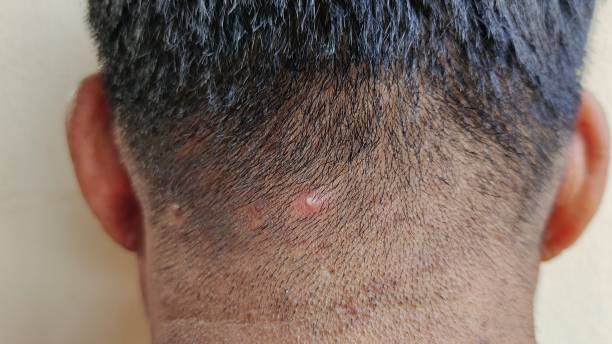
Several factors could lead to hair transplant falling out after 6 months.
- Natural Hair Cycle: Hair growth follows a cycle of growth, rest, and shedding. Some transplanted follicles may shed before regrowing stronger hair.
- Inadequate Aftercare: Poor scalp hygiene or skipping prescribed treatments can hinder optimal growth.
- Underlying Conditions: Hormonal imbalances like androgenetic alopecia or unaddressed medical issues can impact results.
- Trauma or Infection: Rough handling of the scalp or infections post-transplant can damage hair follicles.
- Lifestyle Factors: Stress, smoking, or inadequate nutrition might contribute to hair shedding.
Skin & Hair specialist, Dr. Methil, adds:
“Maintaining realistic expectations and following prescribed care protocols play a crucial role. Remember, your scalp’s health determines the long-term success of your transplant.”
Now that you know the reasons, how do you differentiate normal shedding from something worrisome? Let’s explore.
When Should You Be Concerned About Hair Transplant Falling Out?
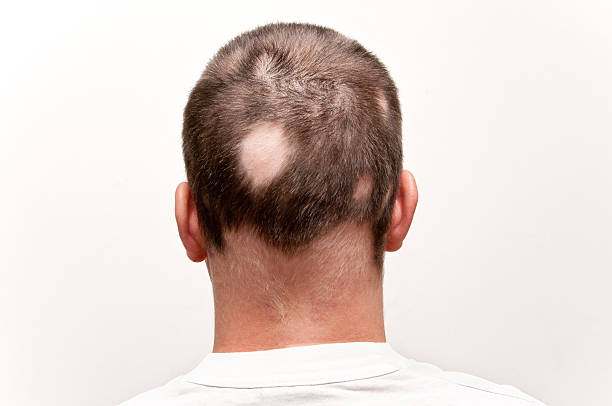
While some shedding is normal, persistent or excessive hair loss might signal a problem.
Signs that warrant a consultation:
- Bald patches or uneven hair growth.
- Scalp redness, itching, or infection.
- No visible improvement after 6 months.
Dr. Methil, a sought-after cosmetologist in Andheri, reassures patients by taking a proactive approach:
“Early intervention can prevent complications. Regular follow-ups allow us to assess progress and make necessary adjustments to ensure optimal results. Conditions like thyroid disorders, hormonal imbalances, or scalp infections can also interfere with hair growth. Consult a specialist if you suspect underlying health issues.”
Noticing unusual hair fall after your transplant? Reach out to a specialist for an evaluation and tailored solutions.
But what can you do to minimize this issue? Let’s find out.
How to Prevent Hair Loss After 6 Months of Hair Transplant?

Preventing hair fall after a hair transplant requires a combination of diligence, proper care, and lifestyle adjustments. Here are effective tips from Mumbai’s acclaimed dermatologist, Dr. Methil, to help maintain your results:
- Use prescribed medications, shampoos, and topical treatments as your doctor recommends. Avoid over-the-counter products or harsh chemicals that irritate the scalp or damage follicles.· Consuming foods rich in biotin, iron, zinc, vitamin D, and omega-3 fatty acids is essential for nourishing hair follicles and encouraging healthy growth.
- Dehydration affects your scalp’s health, making it prone to dryness and irritation. Drink at least 2–3 liters of water daily to keep your scalp hydrated.
- Chronic stress disrupts the hair growth cycle, leading to excessive shedding or thinning. Engage in stress-relief practices such as yoga, meditation, or regular physical exercise to maintain a healthy scalp environment.
- Smoking reduces blood circulation to the scalp, depriving hair follicles of essential nutrients and oxygen. Quitting smoking not only benefits your hair but also improves overall health.
- Avoid excessive rubbing, scratching, or styling that may strain hair follicles. Detangle with a wide-toothed comb and choose hairstyles that don’t pull tightly on the hair.
- To protect against UV damage, minimize exposure to direct sunlight, wear a hat, or use sunscreen designed for the scalp.
- Massaging the scalp increases blood flow to the hair follicles, promoting healthy hair growth. Use gentle circular motions with your fingers or a specialized scalp massager.
- Limit the use of hair dryers, curling irons, and straighteners. Excessive heat can damage hair and weaken newly transplanted follicles.
- Quality sleep is essential for recovery and repair, including hair regeneration.
- Excessive alcohol can dehydrate the body and interfere with nutrient absorption, which indirectly impacts hair health.
But what if hair fall persists despite your efforts? Don’t lose hope—there are options.
What Are Your Options If Your Hair Is Falling Out After 6 Months?
If hair shedding continues, you may require additional interventions.

- Scalp PRP Therapy: Platelet-rich plasma injections can rejuvenate hair follicles.
- Hair Growth Medications: Options like minoxidil or finasteride might be recommended.
- Supplementary Procedures: In severe cases, a follow-up transplant may be considered.
Dr. Methil often tailors treatments based on individual needs:
“Every scalp is unique, and so is the solution. Whether it’s advanced therapies or lifestyle modifications, addressing hair fall effectively requires a holistic approach. Regular check-ins with your hair transplant specialist ensure your recovery is on track. They can monitor progress and suggest treatments like PRP therapy if needed.”
Still struggling with hair shedding after your transplant? Consult a qualified dermatologist to explore advanced solutions to restore your confidence.
You’re not alone in your concerns. Let’s address some frequently asked questions.
Frequently Asked Questions
What is shock loss after a hair transplant?
Shock loss refers to temporary hair shedding that occurs after a transplant. It happens when newly transplanted hair follicles adjust to their new environment. This phase is normal and typically resolves as the hair growth cycle stabilizes.
How long does it take for hair to fully grow after a transplant?
Hair typically begins to grow after 3–4 months and achieves full density within 12–18 months. The timeline may vary based on individual factors like hair type, transplant area, and adherence to aftercare.
What should I do if my hair transplant continues to fall after 6 months?
If hair shedding continues, consult your specialist immediately. They may recommend further evaluation and treatments, such as PRP therapy or medications to boost follicle health.
Is hair transplant permanent?
Hair transplants are generally permanent because they use follicles from areas resistant to balding. However, proper care and addressing underlying conditions are crucial to maintain results over time.
Reference Links:
https://wimpoleclinic.com/blog/hair-transplant-falling-out-after-1-year-what-to-do-next
https://www.treatmentroomslondon.com/aftercare-recovery/hair-shedding-after-a-hair-transplant
Disclaimer: The information shared in this content is for educational purposes only and not for promotional use.

